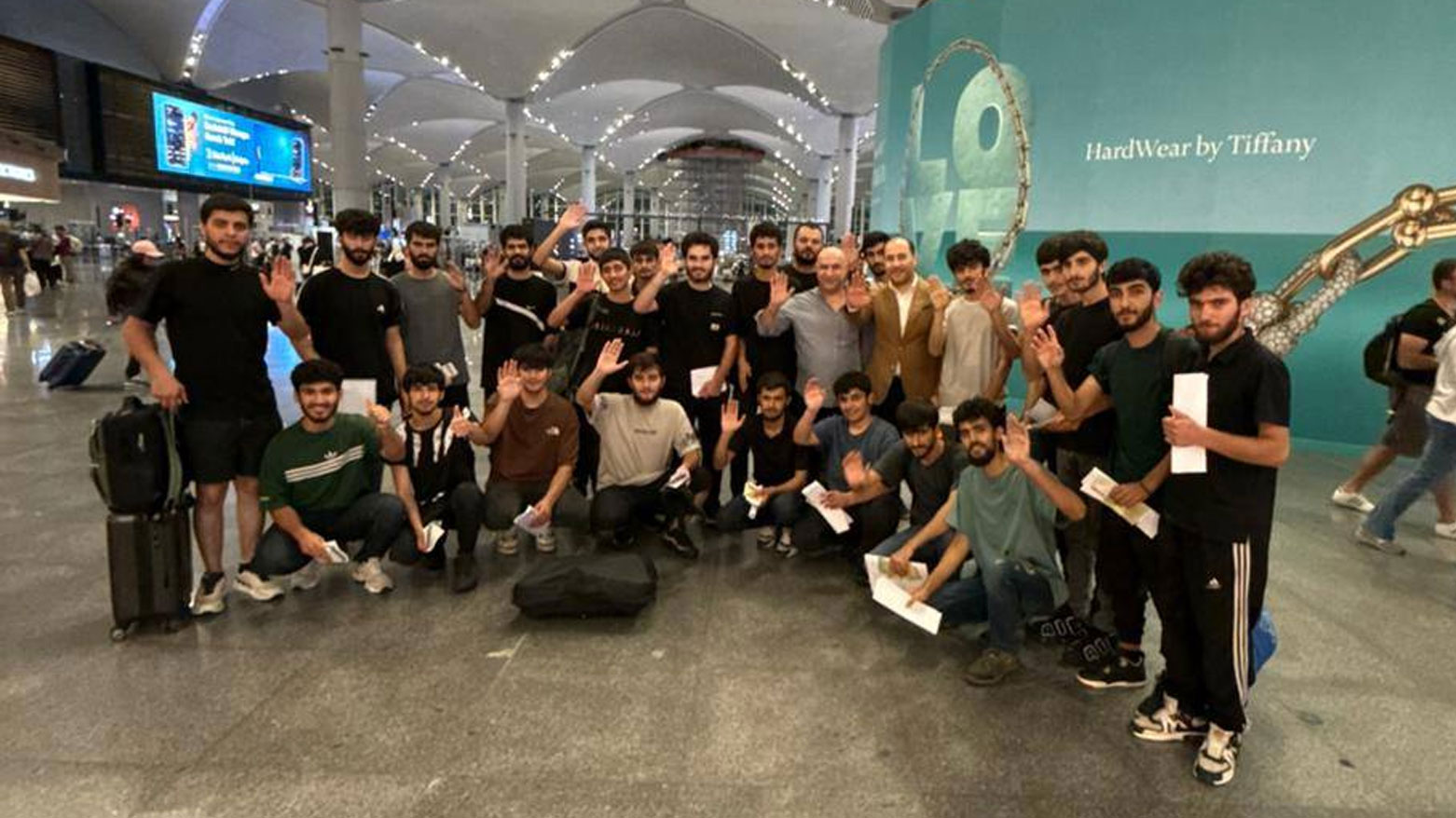Forty Kurdish Migrants Repatriated from Libya to Erbil
Iraq repatriated 40 Kurdish migrants from Libya to Erbil, with another 35 expected soon. The Iraqi Embassy in Tripoli credited coordination with the KRG and Libyan authorities.

ERBIL (Kurdistan24) – The Iraqi Embassy in Tripoli announced on Saturday the successful repatriation of 40 Kurdish migrants from Libya to Erbil, marking another coordinated effort to bring home Iraqis stranded in one of the world’s most dangerous migration corridors.
Speaking to Kurdistan24, Ahmad al-Sahhaf, the Iraqi chargé d’affaires in Libya, confirmed that the group departed Tripoli for Istanbul before continuing to Erbil International Airport.
Al-Sahhaf praised the “exceptional coordination” involved in the operation and revealed that the embassy is preparing to repatriate an additional 35 migrants in the coming weeks. He also expressed gratitude to the Government of National Unity in Libya for its cooperation in facilitating the process.
“We provided food, medicine, and care for our citizens and secured their travel tickets in coordination with the Kurdistan Regional Government,”
said al-Sahhaf, adding that the embassy has so far returned 122 Iraqi migrants since reopening.
The diplomat underscored that the mission will continue its awareness campaigns warning against human smuggling networks that prey on desperate youth. “We remain committed to the directives of the Ministry of Foreign Affairs in Baghdad, emphasizing voluntary repatriation and safe return,” he noted.
Al-Sahhaf added that both the International Organization for Migration (IOM) and Libya’s Anti-Illegal Migration Center commended the embassy’s efforts and responsiveness toward Iraqi nationals.
“Iraq has great potential in its youth sector and should no longer be a country of emigration,”
al-Sahhaf affirmed.
Earlier, on Sep. 10, 2025, the Kurdistan Regional Government’s Department of Foreign Relations announced the return of 25 Kurdish youths who had been detained in Libya for over fifty days before being released and flown home to Erbil.
Libya has long been a critical transit hub for migrants and asylum seekers fleeing poverty and conflict, particularly from sub-Saharan Africa and the Middle East. Since the country’s political collapse in 2011, the breakdown of state institutions has fueled lawlessness, creating fertile ground for human trafficking and forced labor.
In eastern Libya, trafficking networks operate with near impunity, detaining migrants in makeshift warehouses across cities like Tobruk, Benghazi, and Sirte. Numerous reports reveal that detainees are subjected to extortion, beatings, and forced labor, with many only released after their families pay large ransoms. Others are forcibly relocated to remote regions such as Kufra in the south, often deported under inhumane conditions.
Despite repeated pledges by Libyan authorities to combat these crimes, the humanitarian situation remains dire.
According to the International Organization for Migration (IOM) and UNHCR, Libya currently hosts about 705,746 migrants as of April 2024. While most originate from Niger, Mali, and Somalia, a smaller but growing number — including Iraqis and Syrians — view Libya as a gateway to Europe.
The Global Detention Project has documented persistent and severe abuses in Libya’s network of detention centers, many of which are controlled by militias. These facilities are plagued by overcrowding, starvation, and rampant physical and sexual abuse. Torture, forced labor, and modern-day slavery are widespread, while meaningful international oversight remains virtually nonexistent.
Nevertheless, European governments continue to engage in controversial migration agreements with Libya, seeking to prevent Mediterranean crossings. These arrangements involve funding and training Libyan security forces, supporting detention infrastructure, and even financing militia groups that claim to control migration flows — actions that have drawn condemnation from human rights organizations.
Against this backdrop of systemic abuse and exploitation, Iraq’s diplomatic missions and the Kurdistan Regional Government (KRG) have intensified their efforts to safely return citizens stranded abroad.
The Iraqi Embassy in Tripoli, with direct support from Erbil, has become a key lifeline for migrants trapped in Libya’s deteriorating conditions. Officials emphasize that these repatriations are part of a broader national strategy to combat irregular migration and raise awareness about the dangers of human trafficking networks.
For many of those returning, the journey home marks not just the end of a perilous odyssey but the start of rebuilding their lives — a process that the Iraqi and Kurdistan authorities hope will inspire others to seek safer, lawful paths to opportunity within their homeland.